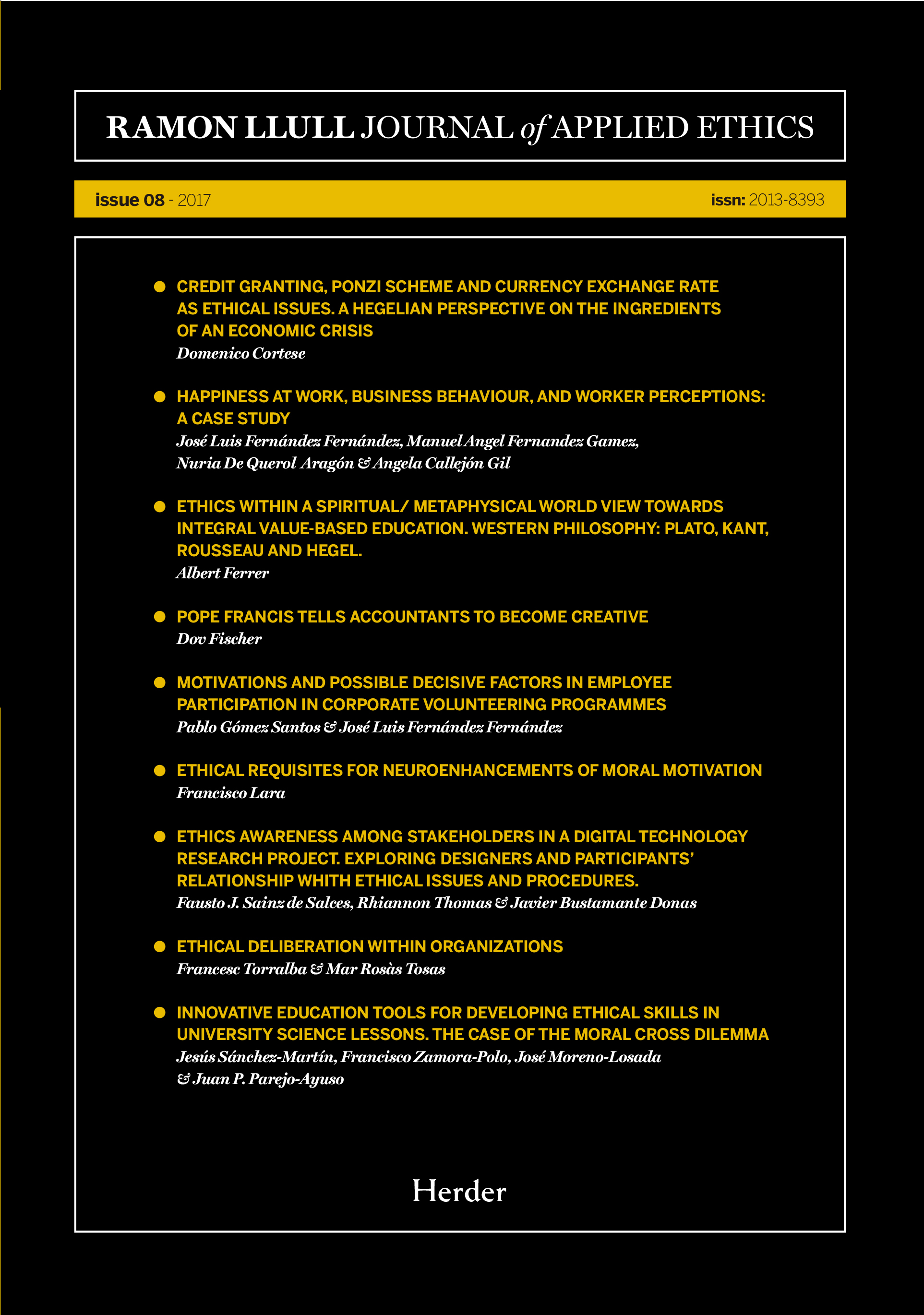Credit granting, ponzi scheme and currency exchange rate as ethical issues. A hegelian perspective on the ingredients of an economic crisis
Article Sidebar

Main Article Content
This paper is an attempt to found a set of ethical guidelines
in respect of specific macroeconomic problems, so that the failure to fulfill these guidelines can be considered both the root of economic crises like the current one, and the reason why such crises are ethically unacceptable.
The main topic I will face is the ethical aspect of the instrument
of credit. I will do that by means of an examination of what being “ethical” within intersubjective life means for Hegel. Credit would assume the role of a major instrument aimed at putting the material and relational conditions for a full reciprocal recognition and fulfillment of desires among economic agents who originally have imbalanced instruments and discrepant times in their capacity to claim recognition and recognize others’
desires. The development and maximization of reciprocal trust, expectation and “attraction” are established as ethical and teleological categories and their interpretation is also utilized to hint at two other issues, the utilization of credit to set up a Ponzi scheme and the debate about the necessity of a flexible exchange rate between the currencies of different countries – relevant in the Euro area today.